Metabolismus
Awhile back I discovered Terra Incognita while drinking beer in a bar and handling some weird looking records with my friends. They sounded like Faust mixed with Popol Vuh.
There wasn’t much information available. I decided to contact some members of the band. I spoke with Werner Nötzel about doing an interview and he replied that straight forward interview is not possible because every member can spoke only about their own experience. Questions were answered by Thomas Schätzl, Moritz Finkbeiner, Samara Lubelski, Hans Pfanz and Werner Nötzel.
Metabolismus could be seen as a self-organizing system characterized by a principle of perpetual transformation. Depending on which sub-constellation of the metabolic microcosm you’re dealing with it would be different people that you’d have to talk to. Over the 30+ years that Metabolismus has been around now the organism/system simply grew too complex to be narrowed down to one aspect/interview partner. We therefore prefer to let the music speak for itself…
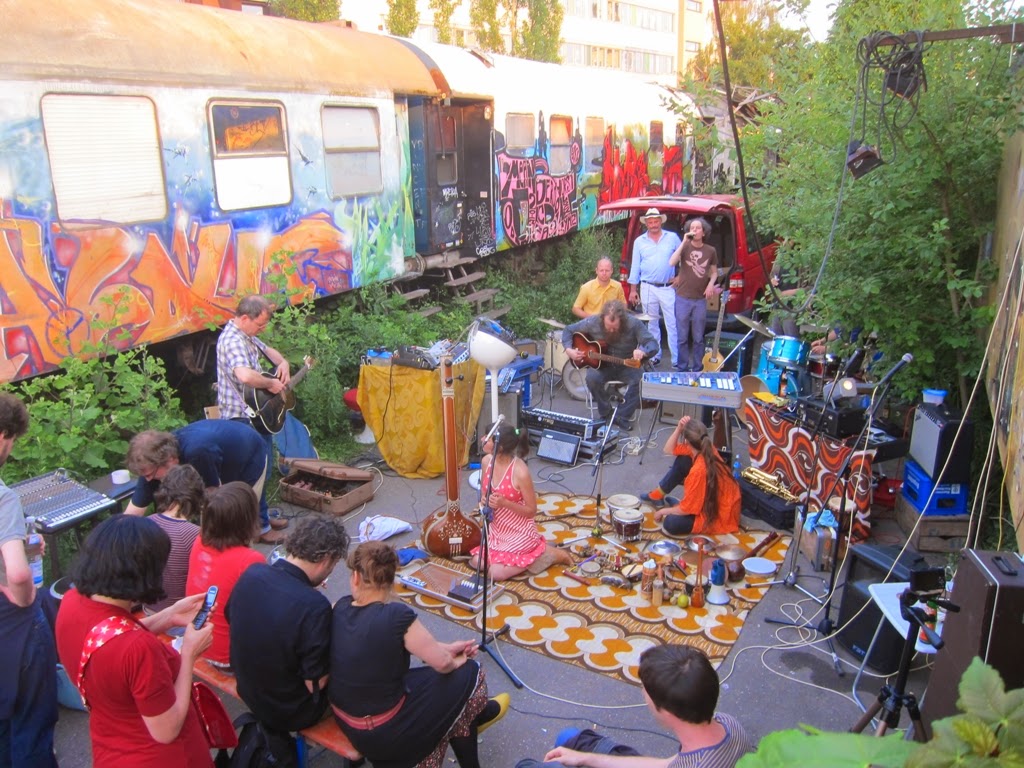
Can you elaborate the formation of Metabolismus?
Moritz: No idea. I was in elementary school in the ’80s and hated it.
Werner: That would have to be Hans Pfanz, or possibly Thomas (Schätzl). The early ’80s, in my memory at least, looked and felt shitty. Music was a form of escapism, among other things… The same old story of any generation ever, I guess.
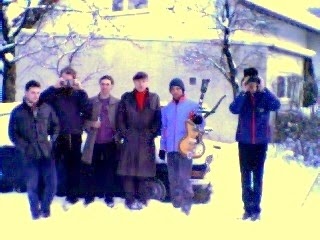
Were you a ‘regular’ band at the very beginning?
Thomas: We were, are and will forever be more than several regular bands. We are wonderful, dangerous, confusing or whatever you like. We were born out of time as musical terrorists dropping tapes, vinyl ‘n lots of soul instead of bombs… Our psycho terror entertainment will save you boring bastards from your life of grey…
Moritz: I was a toddler, not a band member.
Werner: In the beginning the band was without form and void… Then there were parallel bands, sub-constellations, transmutations, shape shifting, involvements in other projects, and side and solo-projects from very early on, like Metabolismus II, Metabolismus HK, Metabölisti 38, Punisher, Pig Farm, Stalker, Cox Orange, Finkbeiner Echo Quartett, Innu Beddo, Prairie Magoos, The Sounders, Yürgen Karle Trio, Weevil, T.A.S.K., Ditcher, Professor Kopf Band and many many more, and most of them actually recorded, though not everybody released their recordings…
Early members were Thomas Schätzl, Jochen Flogaus, Georg Wiedmann, Hans Pfanz, Walter von Holst, Michael Bussmann, Maldoror, Uwe Rotthaus, Ingo Birkmayer, Michael Paukner, Ponti Brückner, Andreas Pintore, Miss M…. Then a 2nd wave with Dietmar Köhle, Joachim Schütz, Werner Nötzel, Thilo Kuhn, Samara Lubelski, Martin Verguliak, … and so on until today. More names along the way: Moritz Finkbeiner, HansJörg Greiner, David Knispel-Kiwus, Ina Saussele, Julian Ripert, Robert Steng, Dario Lehner, Alb Ra, Werner Voran, Björn Luchterhand, Stefan von Raben, Diana Schulze/Denboer, Phillip Korda… – too many to list them all, and I’m sure I would be forgetting a few.
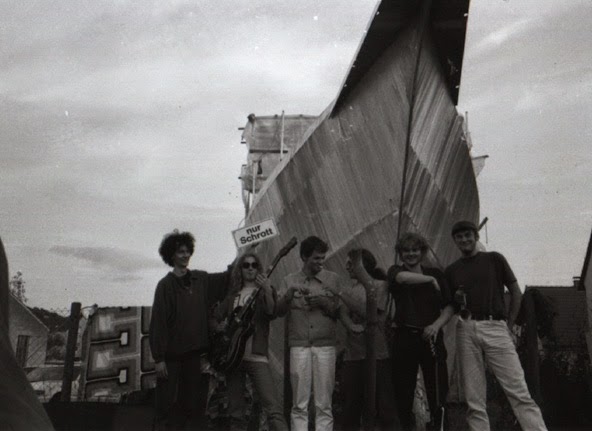
Were you living together?
Werner: Not exactly, many players at the time were small town/country folk from various villages around Göppingen, which is about 40 km outside of Stuttgart.
Samara: At the end of ’91 I had split NYC for an unknown period and was making my way to Spain via a car waiting for me in Süssen, Germany. I broke the clutch of that car almost immediately, and spent the end of the year holidays there while it was repaired. It was a small town and I was playing with Jojo (Joachim Schütz) and Werner (Nötzel) within weeks – late nights at the Ebersbach rehearsal space, free playing. I didn’t speak German and had no idea what was going on. I was immediately enchanted.
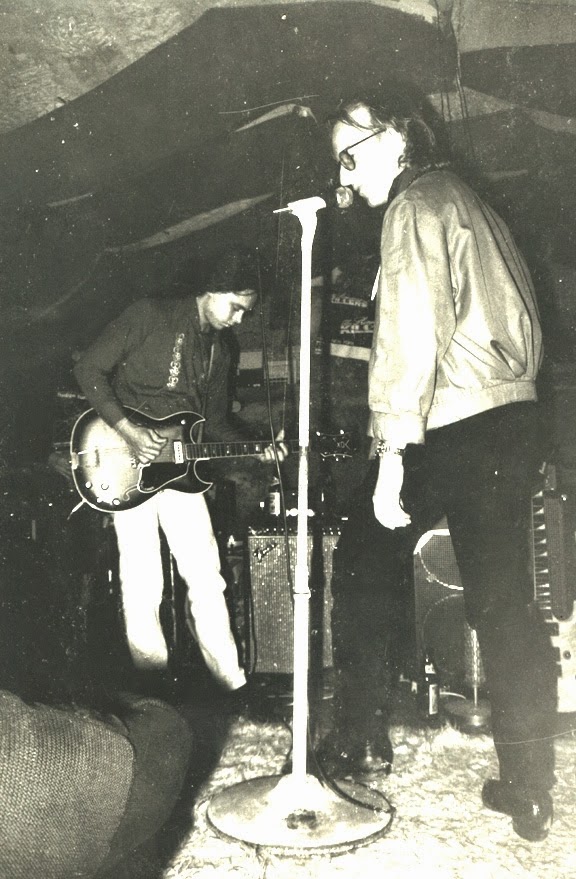
What can you say about the early recordings?
Werner: Sure, early recordings were done ping-pong style with two cassette recorders bouncing off each other, then came the 4-track cassette period which resulted in a string of about 30 self-released cassette albums. We made up labels for them like “Bolametismus tapes and records” but obviously we copied them ourselves and sold them to friends and on concerts.
Moritz: There are many many tape releases before the official release in 91 which is mainly compiled from before released stuff…
Is there a possibility to tell us about the record labels that released your music. I noticed the name Moonflower, Swamp Room and a bit more well known Amish Records. To me it seems, that this was totally DIY project and I find it very interesting, that all of your releases from the very beginning were released on vinyl with a few exceptions.
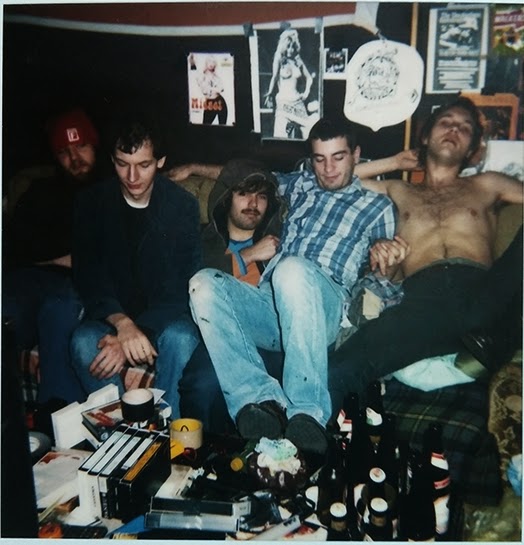
What labels released your music? I noticed names like Moonflower, Swamp Room and Amish Records.
Moritz: Back when most of the releases came out, it was far from interesting releasing on vinyl. It was quite normal. And being very conservative, we simply stuck to that until today.
Werner: You got a wrong impression here, we didn’t start with vinyl but did a lot of cassette releases first, and are still doing them today… There’s actually way more cassette releases than vinyls. It was such an obvious thing to do in the ’80s, the direct, hands-on approach: it was cheap, anybody could do it themselves, and you didn’t have to have large editions, whenever somebody wanted a cassette you’d just copy one and sell it… Very appealing, even today if you want to keep things analogue. So this answer leads back to the last question.
Yes, it was a total DIY operation in the cassette days, and even though we work(ed) with different labels it pretty much still is. We do almost all of our recordings (besides, obviously, live- and field-recordings) in our own studio (Sumsilobatem) and still release them on cassette tapes. But back in the late ’80s: we thought it would be time for a vinyl LP, but had no idea about the actual process, or any money to pay for it. So we made a “demo” tape, which was kind of a “best-of” compilation of our previous cassette releases and sent it out to a bunch of “indie” labels – with no success at all. Nobody was interested until I had the idea to send one to Jürgen Gleue of 39 Clocks, who at the time ran Swamp Room Records. The 39 Clocks were one of our favourites and a big influence for me. It’s actually a funny story, I was having lunch at my grandmother’s place when the phone rang, and it was JG39. He liked the “demo” so much he got my mom’s phone number from the book, called her, and she gave him my grandmother’s number… So he was an early supporter and I want to thank him for that! He released the first LP Azzafatazzam which is basically a compilation of cassette recordings, which also led to contributions to the “Swamp Room Happening” compilation LP series. After having figured out the technical side of doing records we released a couple of vinyl ourselves, mostly 7″es. It was probably the influence of Alan Jenkins (another of our “heroes”) who we talked to after a Ruth’s Refrigerator show. He said that cassettes are nice, but he’ll recommend just doing vinyl ourselves right away… The name “Moonflower Records” was picked for that. Some Metabolismus members were (and still are) Deadheads, so the whole idea and name was loosely modelled after the Dead’s “Sunflower” label (Azzafatazzam is a pretty obvious nod to Aoxamoxoa, and then there’s our Anthem of the Moon LP)…
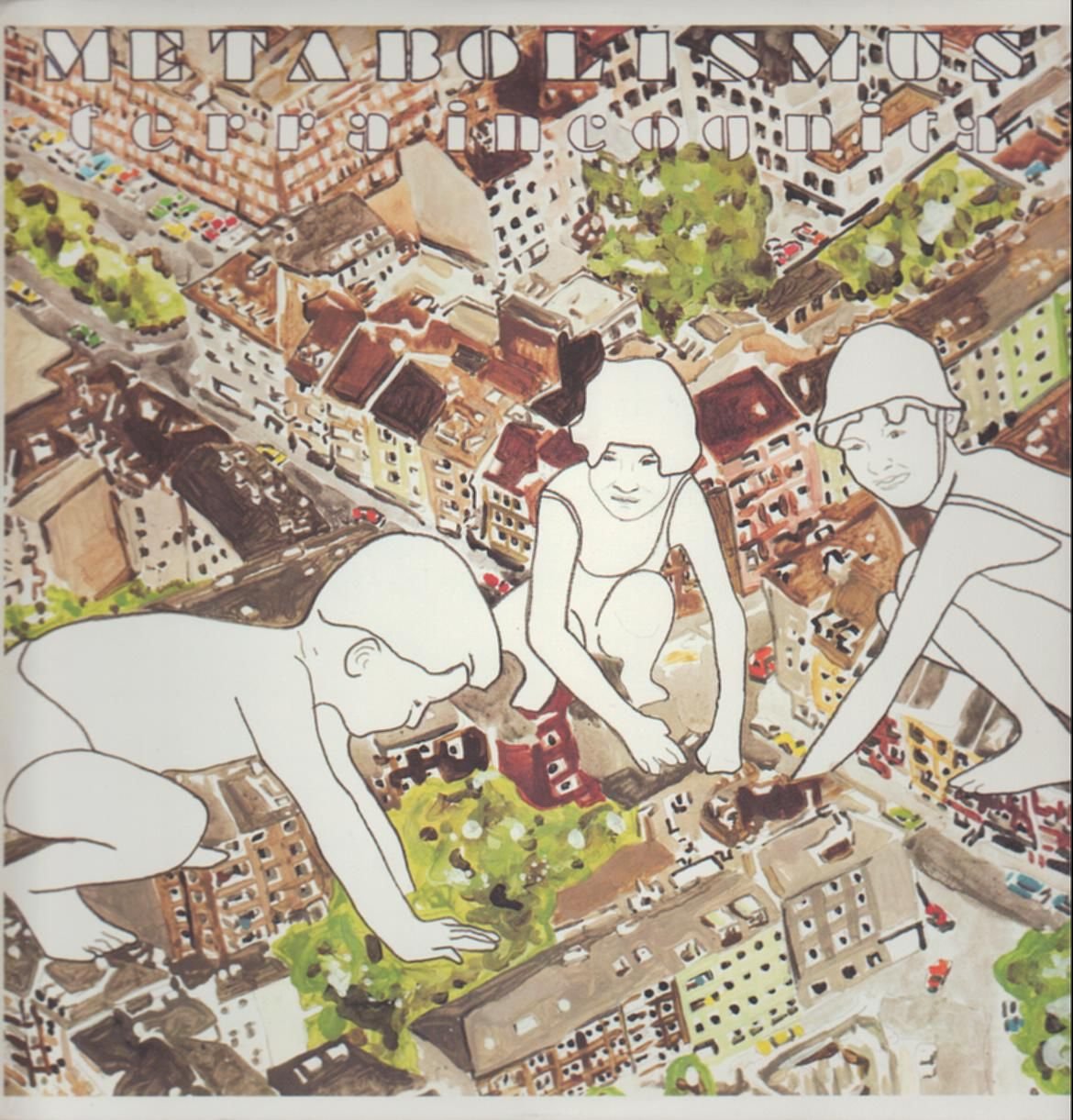
Around that time Samara (Lubelski) became a part of Metabolismus while spending some time in Germany, and when some of us visited her in New York in the mid ’90s we met Matt and Brian from Amish Records who were friends with her. They did several Metabolismus US releases since, we still work with them and they were very helpful over the years. We’re actually currently working on a new vinyl project with Amish called “SuS” which should be out very soon. And I’d like to mention Scott Derr, who did the very first American LP Terra Incognita on his label BlackJack Records.
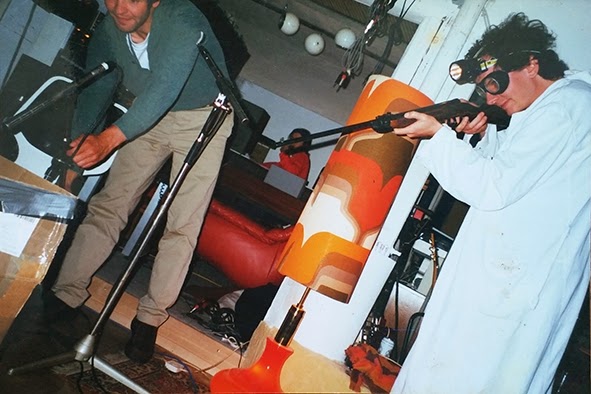
How about Kim Fowley collaboration? You worked with him…
Moritz: On the Kim Fowley and Metabolismus EP it says so…
Samara: I just know that in Kim’s hotel room he had sung for Werner to play the solo and Werner had choked. In what seemed like a clandestine act, Werner had me overdub on the violin at a later date.
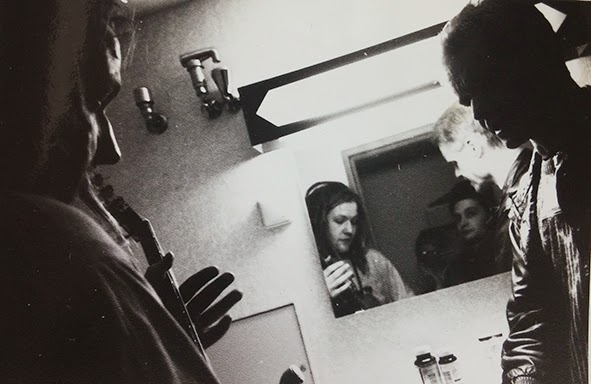
Werner: “Working” together would be saying too much. We recorded with him after basically ambushing him. He’s truly great! A pretty detailed account of the whole thing can be found here.
What’s the concept behind your collective?
Thomas: Access denied, however we sell soul.
Werner: “We don’t give a fuck.” Or to say it more politely: “Anything goes” might be a good one, as far as concepts go… The spirit might be Amdusias, presumably.
Moritz: Being a musical collective! Which includes a lot of different ideas, “spirits”, approaches, combined to… well, whatever happens when we meet to make music…
Future?
Moritz: More music.
In 2013 you released two albums (Spiraltendenz and Brimborium) and a split with Oakland’s Mono Pause.
Werner: The split with Mono Pause is not available yet. Metabolismus and Mono Pause (in The shape of Mark Gergis) met quite some years back, on a Berlin flea market actually, and there’s been plans for a split release since then. 2013 seemed like the right time to make it a reality to mark the 20th band anniversary of Mono Pause, but we couldn’t find a label to release it on vinyl until just recently. It looks like Unrock from Germany will be putting it out later this year (2014)…
Brimborium is a cassette release of a live recording from an outdoor show on a railroad junkyard in Stuttgart, released by the always great Sloow Tapes/Wax from Belgium. The Spiraltendenz LP was recorded in 2003 and features guest players Eugene Chadbourne on guitar and piano, and German drummer Schröder. It was released on Troglosound in Italy, the label of our dear friends David Vanzan and Virginia Genta (aka the glorious Jooklo Duo – if you haven’t found your entry into the Jooklo universe yet, do yourself a favour and get to it…).
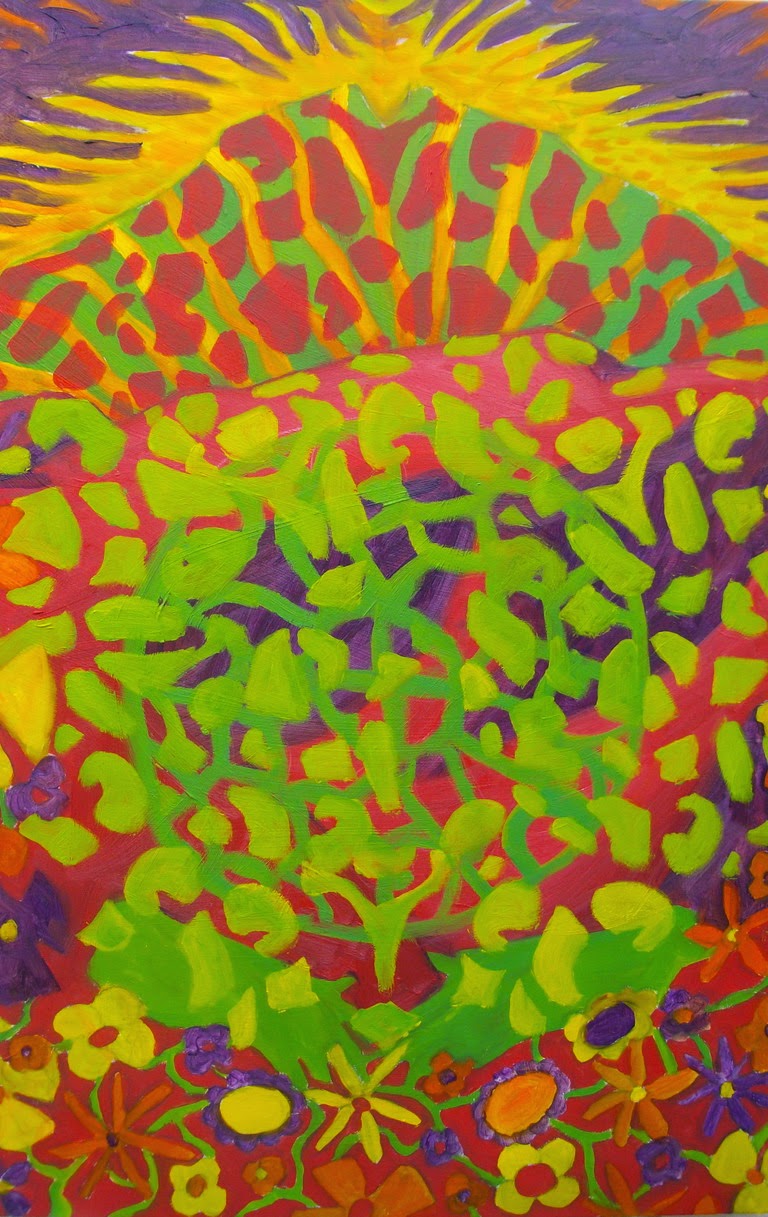
And of course we don’t know what the future will bring, but right now it looks like, besides the already mentioned release of “SuS” on Amish Records, our collaboration with Jooklo which started in late 2012 is ongoing and fruitful, we’ll have more concert and studio dates in August which will hopefully result in more collaborative Troglo- (and others) vinyl and/or cassettes. Then there will be a cassette release of a trio of Metabolismus-members (Samara Lubelski, Thilo Kuhn and myself, Werner Nötzel) called “Augenmusik” on Eiderdown Records from Seattle soon, and we have an almost finished album with another friend from Italy, experimental vocalist Patrizia Oliva, that we’re trying to get released as a vinyl LP (interested labels please get in touch). And a vinyl release of our collaboration with 5050 from 2012 is also in the workings, on Black Sweat Records, again from Italy. Besides these projects on different labels we’ll also be self-releasing vinyl in ’14/’15, the “Umbrellas and Chinese Girlfriends” 10″ and a 4th installment in our “Grounded” 7″ series + most likely a bunch of cassettes again… Oh, and by the way: if anyone wants to order any of our more recent self-released and distributed cassettes they can do so by simply writing to: werner@metabolismus.com.
Where can people see and hear the collective?
Moritz: Not very often. Too many people involved.
Werner: We do live stuff in different forms, but rarely and mostly locally… Besides conflicting private timelines of the players booking tours for a band with a 15+ people lineup is not an easy task. We tried so in summer of 2013, when we opened for one of Samara’s other bands, Chelsea Light Moving, on a couple of South German shows and then went on to Belgium for a few dates, with Jooklo Duo joining us for the whole trip. But travel expenses are high, and most promoters are not prepared to provide food and drinks and accommodation for that many people, especially if the band’s totally unknown and there’s no way of knowing if there’ll be any audience for it… So the only way to see the big lineup (if you’re not from the Stuttgart area) is on YouTube, there’s some videos up there, including relatively fresh ones (for our standards at least) from the 2013 tour… You can hear us on all our recordings though.
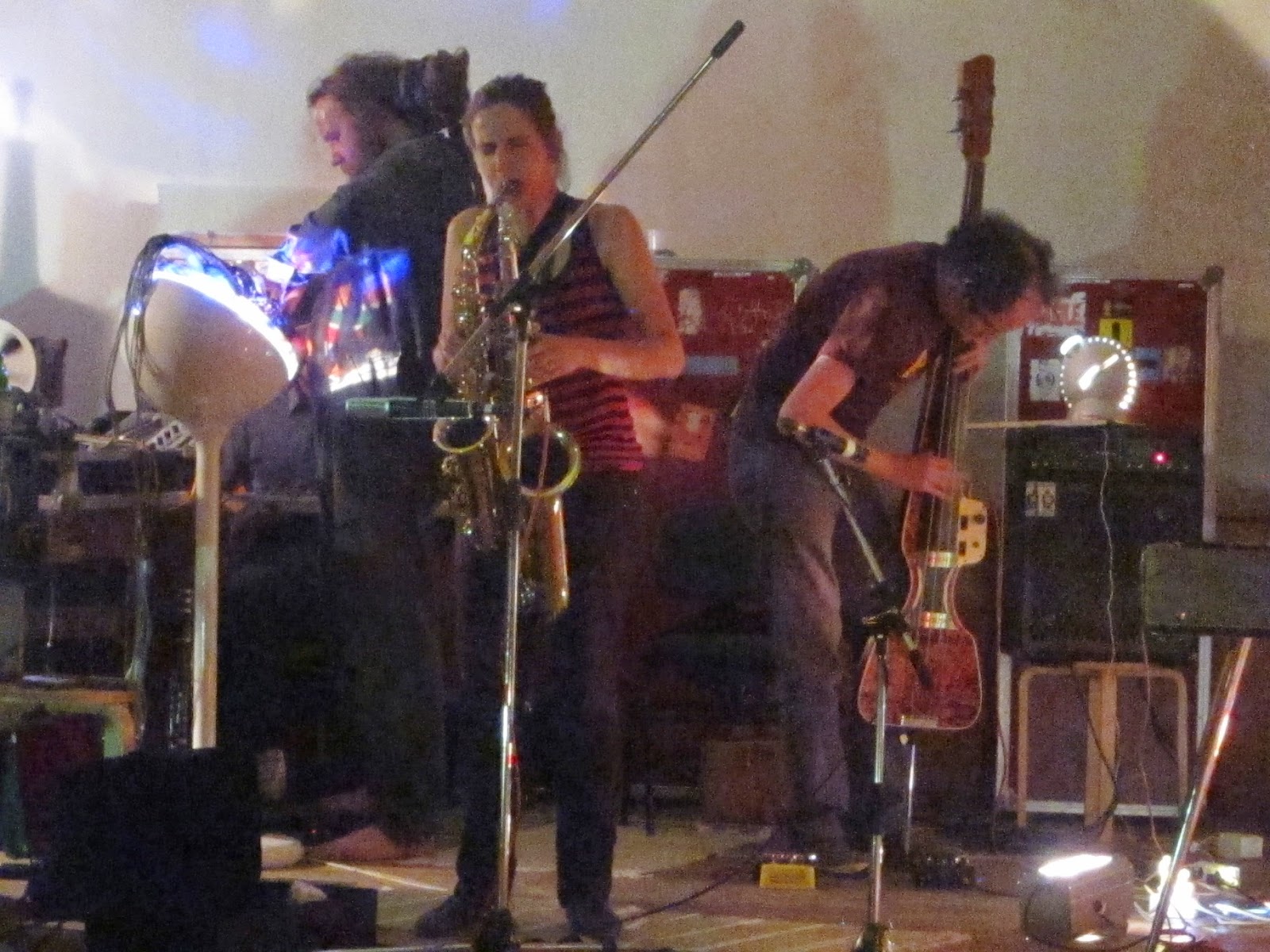
What does the word “music” represent to you?
Werner: It’s such an individual thing, I’d have to say it’s impossible to answer this generally. I would think that as many people involved in Metabolismus you’d ask, as many different answers you’ll get…
Mine could be: the universal language.
Thomas: Music is painting a picture for your mind when it creeps through your ears.
Moritz: Depends on the music.
Influences?
Moritz: Good music.
Werner: Life = music + people + animals + films + books + drugs + food + dreams and nightmares + meditation + everything else… (in no particular order) – but I guess you want to know more specifically about other people’s music. That would again depend on who in the group you’re asking, but bands/artists/projects that were generally important to me personally in the early days were The Nihilist Spasm Band (we even had a project called “Sensabolic Spasm Band” at one point); The Godz (and other ESP-stuff); The Shaggs; Silver Apples – Music by people that didn’t/couldn’t play (conventional) instruments, “primitive” sounds. Also the local ’60s Beat scene, as documented on the “Schnäbbls” compilation series. Then I could probably mention The Darmstadt School; FMP; Dada; Fluxus;… Out of all this a very vague idea manifested itself, of something one might call “primitive avantgardism”. Considering other German/Euro stuff: the similarities everybody seems to hear are not so much a result of studying the experimental ’70s scene nowadays called “Krautrock”. I think it’s more the result of a similar mindset and similar means of interaction as well as similar production approach and methods, and drawing from similar influences (pre-Kraut) musical and non-musical. More important and directly influential was other late ’70s/early ’80s music we were listening to, like the aforementioned 39 Clocks, Die tödliche Doris possibly, or Hirsche nicht aufs Sofa… British Pop, Punk, Post punk, Art rock and related sounds like Deep Freeze Mice; TVP; TG; Crass; Fall; Henry Cow;… Home/Bedroom recording stuff like R. Stevie Moore; John Trubee; even Gandalf the Grey probably… Plus world musics, middle-eastern and Gamelan, among others, and soundtracks. …and of course there’s always the Sun (Ra) and the Moon(dog).
Samara: I quickly realized that I was in the company of listeners with kindred and way more developed and diverse taste than my own (collectors). Very generously they started to blow my mind…
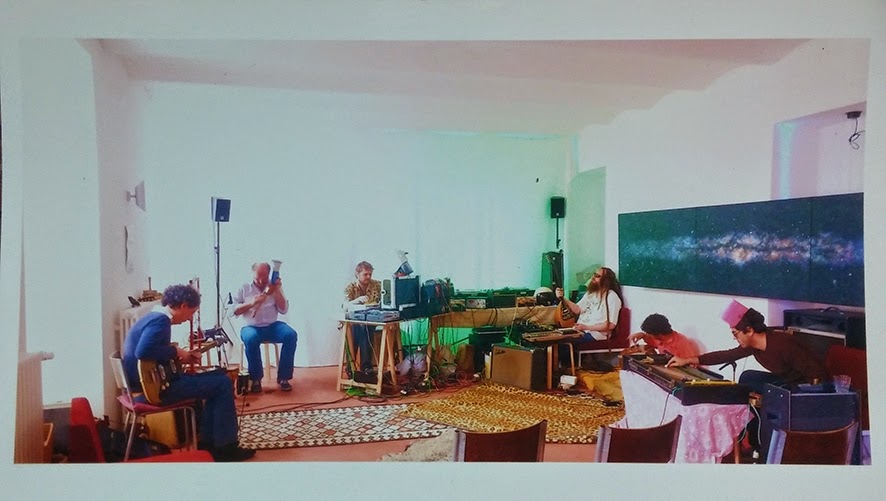
Were any members part of any other project?
Moritz: Yes, almost everybody has other bands, projects, solo careers. Many, many, countless and extremely different bands of all styles.
Werner: This would be a very long list, as you can imagine after over 30 years now with a number of members that noone ever really bothered to determine… Most of it is very low-profile though, besides probably Samara (Lubelski)’s endeavours… So I’d limit it to projects that are currently active, which would be Sinergia Elettronica, a project of electro-acoustic ritual sounds with David Vanzan and Virginia Genta of Jooklo Duo (two live tapes available, vinyl coming soon), Umwurf, which is electronic music, as well as Moritz (Finkbeiner)’s projects Monsieur Mo Rio, Fizze, Mosquito Ego, and Georgel Nord. Robert (Steng) and Ali (HansJörg Greiner) play in Rocket/Freudental, Dietmar Köhle in Torben Denver Band. JoJo (Joachim Schütz) plays with Arnold Dreyblatt, among others. Not to forget Ekkehard Rössle’s band 5050 (fifty-fifty), they have releases on the Klangbad label available, as well as his other musical activities. And check out Patrizia Oliva’s music, while you’re at it…
Were any of you involved with original ‘krautrock’ bands?
Moritz: No
Werner: No, we’re not old enough for that. Most of us Weren’t born before the mid ’60s – mid ’70s and so had our musical coming-of-age from the 1980s on. Metabolismus recorded with Gerd Kraus from Limbus later on but for most of the 1970s almost all of us were simply too young…
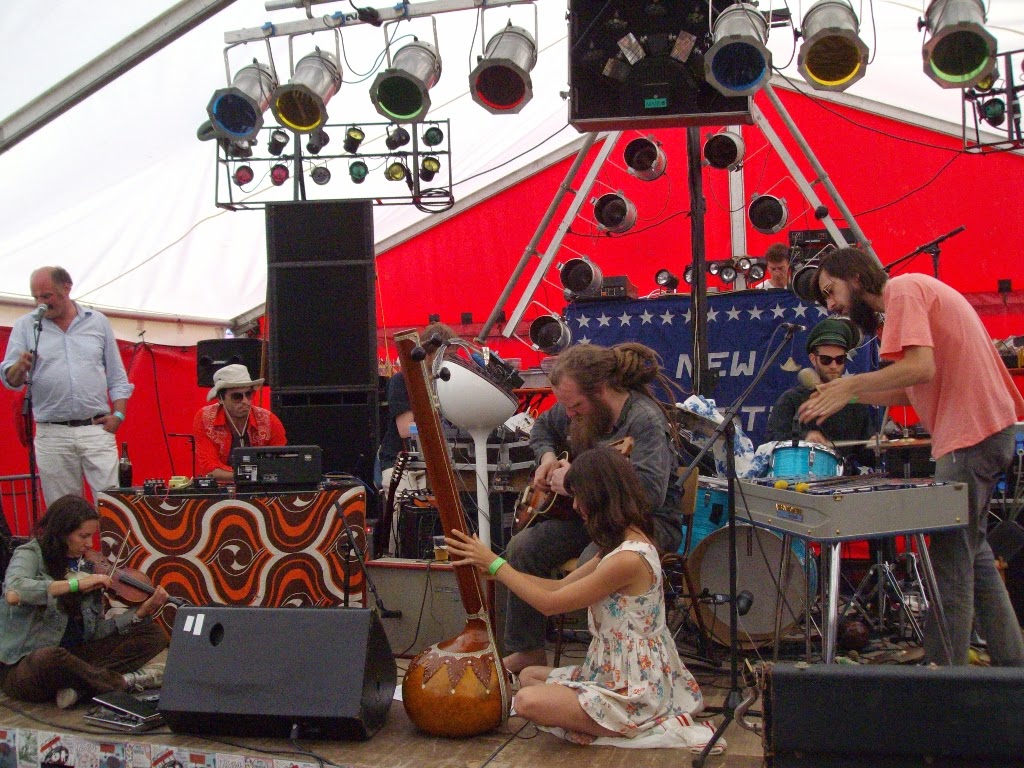
Would you like to share anything else?
Moritz: Yes. For a good South German meal you need per person:
100 g of spelt flour.
1 egg
1 half eggshell full of water
1 dash of salt
stir til gluey
Now take the lid of a cassette case. Put the batter on a flat, smooth wooden plate. Cut little worm shaped noodles with the cassette-tape-case-lid into boiling water. When the noodles come up to the surface they´re ready to serve with cheese and onions, or creamy mushrooms, lentils seasoned with vinegar etc. etc.
And guada.
Werner: Hail Satan?
Hans Pfanz: Esteemed Readers – Everything you’ve been told is a lie. Metabolismus is one person with a computer somewhere in a basement/ivory tower/mental institution/space station/cave/starbucks, faking it all. Unfortunately I can’t reveal his/her identity, or this reality would cease to exist…
– Klemen Breznikar
If you ever become oversaturated of predictable conventional/commercial music that surrounds us and rapes our mind daily, make yourself a favor and visit Metabolismus. (http://www.metabolismus.com/)

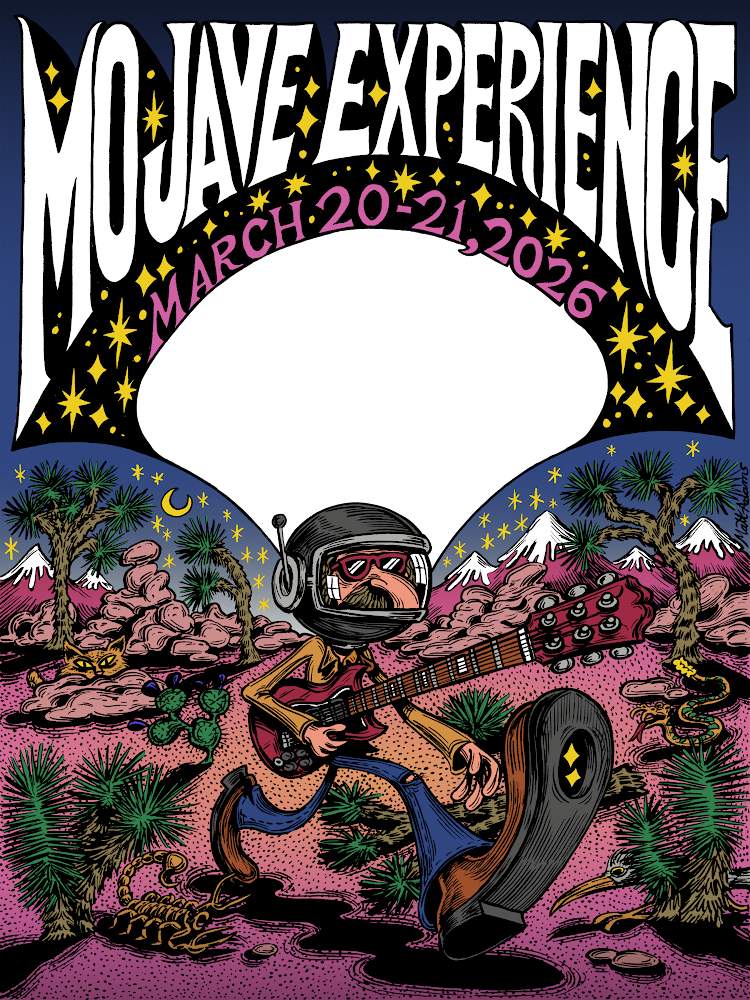

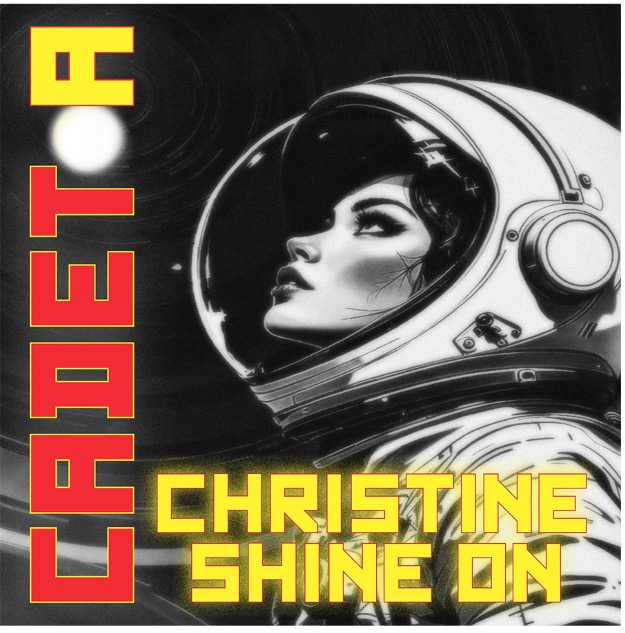
I affirm the quality of Moritz's spaetzle recipe.